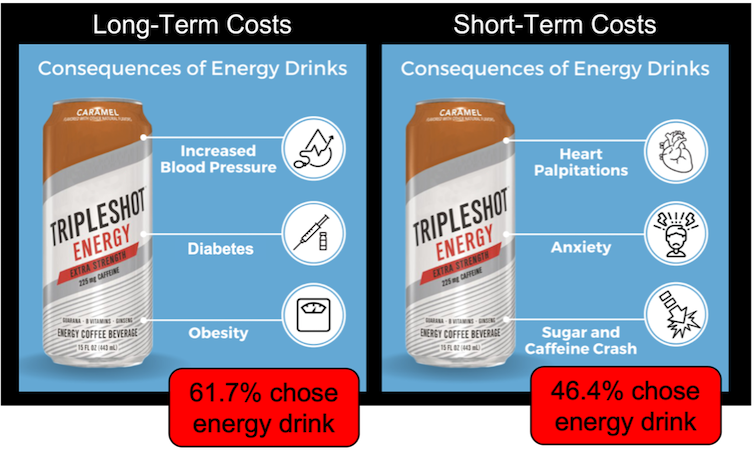It’s a familiar start-of-the-year scene. You’ve committed to a healthier lifestyle and are determined that this time is going to be different. Your refrigerator is stocked with fruits and veggies, you’ve tossed out processed foods, and your workout routine is written in pen in your daily planner.
Yet, as you head out one morning, the tantalizing aroma of fresh doughnuts wafts through the air. How can you resist the call of this sugary treat and stick with your healthy choices?
Conventional wisdom, grounded in years of research, suggests that the best way to resist unhealthy choices is to think about the long-term consequences. For example, you could consider how the added sugar from eating too many doughnuts can lead to diabetes and obesity. Thinking about these long-term consequences, the argument goes, should help you avoid indulging right now and better stick to your goals.
However, in our combined 25 years of experience investigating people’s self-control behavior and motivation, we have learned that, in the heat of the moment, people often overlook distant outcomes, diminishing the effectiveness of strategies focused on the long term.
In response, we propose three approaches, backed by recent research, to help you stick to healthier habits.
To resist temptation, think short term
One strategy to avoid indulging is to consider the short-term consequences of unhealthy behavior. We tested this approach in seven studies with over 4,000 participants.
In one study, we invited university students to view one of two public service announcements detailing reasons to avoid energy drinks. One message emphasized long-term costs of drinking high-sugar energy drinks, such as diabetes and obesity. The other stressed short-term costs, such as anxiety and a sugar and caffeine crash.

PSAs about unhealthy energy drinks: One highlights the long-term health costs, and the other highlights the short-term costs – 61.7% of participants chose the energy drink over another prize if they only saw the long-term PSA vs. 46.4% of participants who saw the short-term PSA.
Lilia Fromm
Students then had a choice between receiving an energy drink or another attractive prize. Those who read about the short-term costs were 25% less likely to choose the energy drink than those who read about the long-term costs.
In another study with a similar setup, participants read about either the short-term costs of eating sugar, the long-term costs of eating sugar, or they did not read about any downsides. Everyone then had to choose a delivery of cookies or a tote bag. Those who read about the short-term costs were 30% less likely to choose the cookies than those who read about the long-term costs and 45% less likely than those who didn’t read about any detriments to sugar.
We found that emphasizing short-term costs can also help you avoid other temptations. For alcohol, think about how excessive drinking can lead to…



